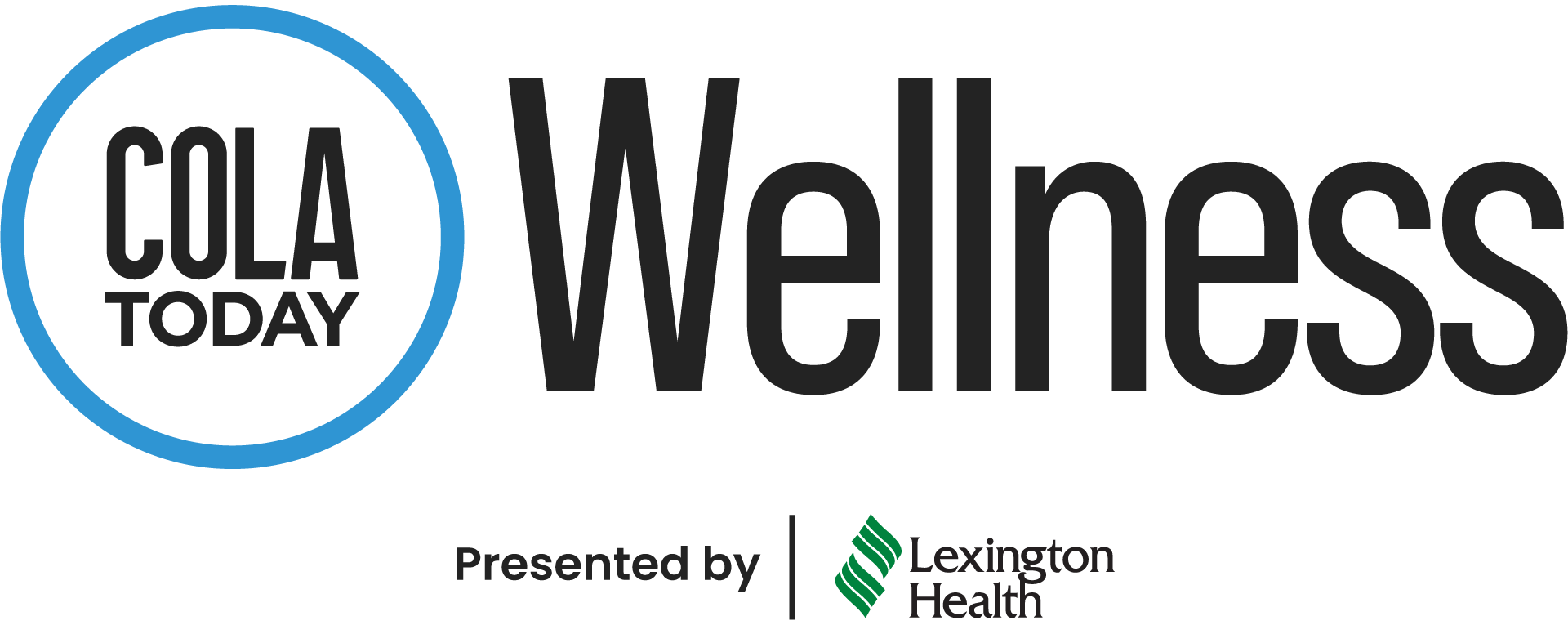February is American Heart Month — which means there’s no better time to ensure this essential organ keeps you going strong. 🫀
That’s why we asked readers to submit their heart-related questions for this month’s installment of Prisma Health On Call — our Q+A series that connects you to the healthcare professionals at Prisma Health. Here with the answers are Prisma Health’s heart and vascular specialists, who tackle questions about inherited cholesterol, heart disease prevention, exercise safety, heart issues vs. acid reflux, and more.
See the full Q+A below.
Q: How do you improve your average heart rate during cardio (i.e. build endurance by keeping heart rate in a lower zone before exercising in higher zones)?
A: The best way to develop and maintain an average heart rate that remains within a healthy range is to engage in routine moderate exercise for at least 30 minutes 5x per week. During these exercises individuals should target to keep their heart rate around 65% of their maximum heart rate for their age. Your maximum heart rate is about 220 minus your age.
Q: I am a 59-year-old Black male. What can I do to prevent heart disease?
A: The best way to prevent heart disease is to have a healthy lifestyle. A healthy lifestyle involves eating a healthy diet that is rich in vegetables and fruits and low in cholesterol dense foods like meat and dairy. It should also include regular exercise at least 3-5 times per week. Abstaining from smoking is very important as well. Managing stress in your life and getting regular sleep is also beneficial. Have regular checks to look for issues that could raise your risk for heart disease like high blood pressure and elevated cholesterol. Managing your blood pressure and cholesterol numbers will have a big impact on your risk for heart disease.
If you would like more information on this, the American Heart Association has more information on the topic through their initiative called Life’s Essential Eight and you can review this on their website.
Q: I was recently told I had a heart murmur. Is this serious or something I should be concerned about?
A: A newly developed murmur should be evaluated by a cardiologist via an echo-cardiogram and maintained with routine follow-up.
Q: As a woman in menopause, and having had a total hysterectomy, how concerned should I be about developing heart disease?
A: There are other factors that are believed to have a greater significance towards your cardiovascular risk, including the maintenance of conditions like diabetes, high blood pressure and high cholesterol, and lifestyle factors like smoking, diet, and routine level of physical activity.
Q: How do I know if I have a heart problem and not just anxiety or acid reflux/heartburn issues?
A: Both anxiety and acid reflux can mimic symptoms of a heart problem. Pain or burning in the chest associated with meals or laying down may indicate a reflux/heartburn issue. Anxiety may cause chest pain, but generally is not brought on with exertion.
Classically, heart related issues may be more associated with sudden onset, crushing chest pain and shortness of breath with exertion. Furthermore, the pain may radiate to your arm, or jaw, which is typically not seen with anxiety or acid reflux. Factors like smoking, high blood pressure, diabetes, high cholesterol, and family history of heart disease increase the risk that your symptoms could be related to your heart. Always remember, if you are having persistent chest pain symptoms and are unsure if it is your heart, you should seek emergency help.
Q: My cholesterol and triglycerides are elevated even though I’m on meds for both. My Dad was a heart patient and I have been told that it’s inherited from him. Is this true and what else can I do for this?
A: Yes, this can be true. Elevated cholesterol levels can be inherited and have a genetic basis. I would recommend a healthy lifestyle which includes a healthy diet and regular exercise to help with elevated cholesterol levels, in addition to your current cholesterol medications. Some patients may also have a diagnosis of familial hypercholesterolemia and a specific medication may be indicated in a select group of patients to help control their cholesterol levels.
Q: I am a healthy, active 40-year-old female with an occasional resting heart rate between 36-40. It is more prevalent on days I am less active and near my cycle. Is this safe and normal?
A: It is common for young, active, healthy individuals to have resting heart rates lower than normal range (traditionally defined as heart rates between 60-100 beats per minute). Bradycardia to this degree is common during sleep in healthy individuals. This should not cause alarm as long as no other accompanying symptoms are present. If symptoms should develop in association with low heart rates, including shortness of breath, light-headedness or dizziness, passing out or feeling as if you may pass out, or chest pain, consultation with a cardiologist would be warranted.
Q: I have a condition called fibromuscular dysplasia. It is in my carotid arteries. I suffered a heart attack at 62 with no blockages and or plaque. What steps can I take to prevent this from happening again? I have always practiced healthy eating and exercise routines. This heart attack came out of nowhere.
A: Heart attack not caused by plaque/blockage and associated with fibromuscular dysplasia is usually caused by a spontaneous coronary artery dissection. Patients are at risk for recurrence, with up to 17% having another event in the next three years. It is important to make sure that your blood pressure is well controlled, but, unfortunately, there are not any other interventions that have been shown to reduce risk. It’s important to control the things you can control: following a heart healthy diet and exercise program in order to keep your heart as healthy as possible.
Q: How does aortic valve reflux with high blood pressure cause risky health problems?
A: High blood pressure, in general, is a risk factor for cardiovascular disease and requires routine monitoring with a physician, lifestyle modifications and, sometimes, medications to reduce the likelihood of adverse cardiovascular events. Aortic Insufficiency, when uncontrolled, can ultimately lead to weakened and reduced cardiac function and, ultimately, heart failure if severe.
Q: If treated with medication properly, how much of a health risk is hypertrophic cardio-myopathy?
A: Medical therapy is an excellent first-line option for the management of hypertrophic cardiomyopathy (a disease that thickens the heart muscle), especially for symptomatic patients with gradients across the left ventricular outflow tract. Some forms of hypertrophic cardiomyopathy are particularly associated with cardiac dysrhythmias (arrhythmias) for which patients may need additional treatment including the placement of an internal defibrillator. The overall risk and prognosis for individual patients with hypertrophic cardiomyopathy will depend on the associated arrhythmias, gradients and patient symptoms. It is very important for family members, especially first-degree relatives of patients with hypertrophic cardiomyopathy, to be screened for this condition as some serious forms of it are hereditary.
A big thanks to Verne Prosser, MD, Matthew Cantrell, MD, Guillermo Pineda, MD, William Meeks, MD, Trey Chandler, MD, Dominic Johnson, MD, Jay Shah, MD, Andrea Bryan, MD, David McNeely, MD, for their knowledge + expertise.
Do you need to speak to a health professional about your heart health? Schedule an appointment with a Prisma Health’s heart and vascular specialist.*












